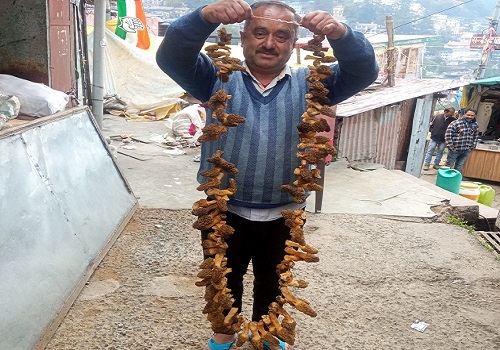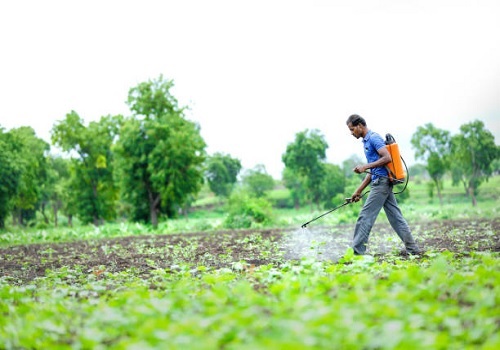World`s most prized morel mushroom plentiful in Himachal forests

Follow us Now on Telegram ! Get daily 10 - 12 important updates on Business, Finance and Investment. Join our Telegram Channel
Himachal Pradesh's highly prized foraged fungi crop known worldwide for its meaty texture, robust flavor and to ward off free radicals that cause ageing, a large proportion of which are shipped to Europe, is bountiful this year in nature owing to plentiful post-winter precipitation, experts and traders said on Monday.
Guchhi, or morchella esculenta, a mushroom variety which grows naturally in snowy slopes, is reaching markets across north Indian towns. A kg of dried guchhi is selling from Rs 8,000 to Rs 12,000 in the wholesale domestic market, depending upon the quality and size.
Almost 90 per cent of the produce in the hill state is heading offshore. Britain, Germany, Italy, France and the Netherlands offer good prices.
The morels sell for upwards of $500 per kilogram in the international market.
A freshly harvested one kg of guchhi is reduced to 80 - 100 grams after drying under natural conditions. In Himachal, a large number of Nepalese, who are otherwise working in Himachal orchards, are involved in collecting this fungus from the wild.
Its harvesting begins in May and lasts till June-end.
Trade insiders told IANS that the demand for morchella from European consumers is rising due to growing interest for vegan food and animal protein substitute.
In Himachal Pradesh, guchhis are grown in dense deodar forests mainly in interiors of Shimla, Chamba, Kullu and Mandi districts. Since its trade is not regulated by the government, there is no estimation about its overall production.
"After two years of lean season, this time the production of guchhi is good. It is highly prized for the domestic consumers," Shimla-based trader Karamjit Singh told IANS.
He said most of the crop is heading to Chandigarh and Delhi.
But traders say China is posing a tough challenge in the international market owing to its large-scale commercial production and comparatively lower price.
"In recent years, China has started cultivating morchella in fields and greenhouses. Owing to its production in bulk, the Indian variant is facing a tough challenge in international trade," a trader, who wishes not to be named, told IANS.
For foragers collecting morel mushrooms from their natural environment is time consuming and back-breaking exercise that lasts for days together.
"This year the guchhi crop is good. Normally we collect 50 to 60 kg of guchhi every year from Rampur forests. This time we have collected over 120 kg," said harvester Devi Thakur.
"Everyone can't be a harvester. One should be mentally and physically strong to harvest guchhis in the challenging terrain. You require sharp eyesight to spot them beneath logs of decaying wood, leaves or humus soil," said another collector Brij Khemta. "This is why the young men and women, mostly from a community, hunt for them collectively."
Thakur, who has been hunting morels for years, added a number of middlemen from Delhi have been procuring the produce directly from them.
After the winter snow, frequent spells of rains in March and April are congenial for the mushroom crop to grow naturally.
Even most apple growers find morels in the forests near their apple orchards. They use them for serving them at special occasions such as weddings and births.
Officials of the forest department say families settled in forested areas are actively involved in the collection of guchhi, and earn handsome rewards for their efforts.
Villagers have permission to collect guchhi, which falls under the category of "minor forest produce".
Villagers ought not to pluck out the roots, as the crop is then destroyed. But many villagers unknowingly pluck the clusters out with their roots, a forester told IANS.
Himachal Pradesh is known for growing a variety of wild spices and medicinal plants. Hundreds of families earn their livelihood by collecting and selling them.
























